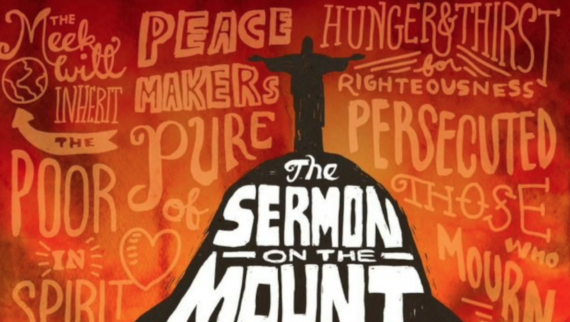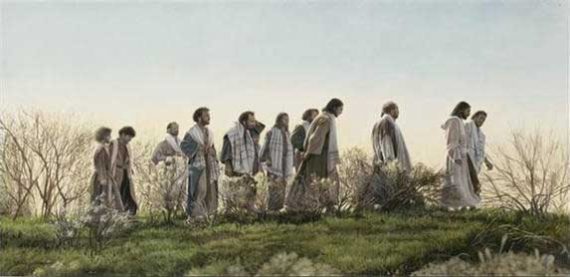The biblical teaching on election is a controversial issue in the church. But it need not be so. By carefully defining our terms and then looking at how the word “election” is used in context, we see that what the Bible teaches about election is not something to be debated, but celebrated.
So let us look at what the words mean, and then consider several texts which contain them.
The word election comes from the Greek noun eklogē (1589), the adjective eklektos (1588), and the verb eklegō (1586). All the words mean “chosen, select,” and I wish that Bible translators would have consistently translated them as “choose” or “chosen” as this would have reduced some of the confusion surrounding the term “elect.”
 There are many related terms as well, such as calling, foreknowledge, ordained, and predestined, but by considering the term election, or to choose, the basic meaning of these others words will become clear.
There are many related terms as well, such as calling, foreknowledge, ordained, and predestined, but by considering the term election, or to choose, the basic meaning of these others words will become clear.
The key truth to remember about election, or “God’s choice,” is that God chooses certain people and groups of people to perform certain tasks in this world so that He can accomplish part of His plan in and through them.
And what does God elect, or choose, these people for?
God does not choose which people will receive eternal life and which ones will not. Instead, God chooses which people will have a prominent role in helping Him move forward His plan for this world.
In other words, election is not to eternal life, but to service.
Biblical Election and Governmental Elections
It is helpful to think of biblical election the way we think of any other type of election. Most modern countries occasionally have some sort of “election” process. During these elections, individual people or groups of people are chosen to serve in a specific role or office so that they can perform a particular purpose.
When those who cast their votes elect a person or group to an office or role, they are not saying that such elected people have eternal life. No, they are saying that these are their chosen people to perform certain tasks in society.
It is the same with divine election.
When God “elects” people or groups, He is not choosing who will receive eternal life, but is selecting them to perform certain tasks in His plan and purposes for this world.
Whom Does God Elect?
Since this is how to understand election, it is obvious that God can elect individuals or entire nations.
 He can elect believers or unbelievers.
He can elect believers or unbelievers.
Sometimes, the people God elects will later believe in Him and be justified (cf. Gen 12:4; 16:16; 17:1), while other times, they will not believe, and remain elect unbelievers (cf. John 6:70; Rom 9:10-24).
Of course, all who believe in Jesus are automatically elected by God, because all believers are “in Christ” and Jesus is the primary elect person in Scripture (cf. Luke 23:35; Eph 1:4-5).
Furthermore, just because God chooses, or elects, someone to fulfill a purpose in His plan for the world, this does not mean that the person will do what God wants.
God never forces anyone to do anything.
But if a person, or group of people, fails to fulfill the purpose for which God chose them, this does not thwart God’s plan or ruin His divine will. Instead, God, in His infinite wisdom and creativity, simply elects someone else to do what the first person or group failed to do.
When Peter failed to take the gospel to the Gentiles, despite being repeatedly instructed to do so, God raised up Saul (Paul) to become the apostle to the Gentiles (cf. Matt 28:19-20; Acts 1:8; 9–11; Gal 2:8; 1 Cor 15:8).
Ultimately, of course, God desires that those whom He chooses will carry out the task that He assigns them to do, but if they do not, God can even raise up people for Himself from stones (Luke 3:8; 19:40).
God can even choose groups of people, such as Israel or the church, to accomplish His will in the world. Again, just as with God choosing individuals, God’s choice of a nation, such as Israel, does not mean that all Israelites have eternal life. Election has nothing to do with eternal life. God can choose all Israel to perform a certain task in this world without requiring that all Israelites have eternal life.
It’s sort of similar with the church as God’s elect (cf. Rom 8:33; Eph 1:4; Col 3:12; 1 Thess 1:4; 2 Tim 2:10; Titus 1:1; 1 Pet 1:1-2; 2:8-9; 5:13; Rev 17:14), except that all members of the church do indeed have eternal life. But God’s election of the church is not because all Christians have eternal life or so that all members of the church will receive eternal life.
All Christians have eternal life and all Christians are elect, but this is not the same thing as saying that all who are elect have eternal life.
Maybe we could put it differently: All who have eternal life are elect, but not all elect have eternal life.
Election is to service; not to eternal life.
While all who have eternal life are elect, not all the elect have eternal life. God raises up whom He wills to perform tasks He desires so they will accomplish His plan and purposes in this world. With this central idea in mind, let us look at several key texts from Scripture that reveal this truth in more detail.
Matthew 20:16; Matthew 22:14
For many are called, but few are chosen.
Many people seem to think that the calling and election of God are two synonymous terms (cf. Romans 8:30). Yet here, Jesus clearly indicates that while many are called, only few are chosen.
In an attempt to explain this passage, some scholars tend to talk about two different types of calling, a general call and an effectual call, and then say that this text is only referring to the general call of God to all people.
But once we recognize that the election of God is not to eternal life, but to a role and purpose within God’s plan for the world, it is no longer a problem to think of God’s calling as simply an invitation to participate with Him in what He is doing in the world. While this calling can go out generally to all, God can also individually select certain people to serve Him in specific ways.
 So Jesus is not referring to the calling or election of some to eternal life, but is teaching the consistent biblical message that while God desires that all people will serve Him, not all do, and so God chooses to work with those who participate with Him in what He is doing in the world.
So Jesus is not referring to the calling or election of some to eternal life, but is teaching the consistent biblical message that while God desires that all people will serve Him, not all do, and so God chooses to work with those who participate with Him in what He is doing in the world.
God issues a general call to everybody, but only chooses those who respond to the call and indicate a willingness to serve Him in this world.
This is exactly the truth taught in the context by the parable of the workers in the vineyard (Matthew 20:1-15). The vineyard owner needs workers to harvest his grapes, and so he makes several different invitations over the course of the day for anyone in the marketplace who might want to work. He chooses to hire and pay any who response to his invitation.
Note that if this parable were about God’s unconditional election of some to eternal life, then the landowner would not have issued a general invitation at all, but would have gone throughout the marketplace and hand-picked several to be his workers, and none of them could have said “No.”
Furthermore, if this parable is about election to eternal life, the fact that they then work during the day and get paid when the harvest is brought in would indicate that eternal life is based on works.
Thankfully, this parable is not about eternal life, nor the false idea that we have to work to earn it. Instead, it is about Gods’ willingness to work with anyone who wants to work with Him, even if it is the eleventh-hour workers who have supposedly been standing around the marketplace all day waiting for someone to hire them (Matthew 20:7).
These men are either liars (if they had truly been there all day, they would have been hired to work), lazy (maybe they were there and heard the call, but didn’t want to work), or greedy (maybe they kept hoping a better-paying opportunity came along), but the landowner hires them anyway.
Jesus is showing here (and in the following two chapters of Matthew, as revealed by the inclusio of Matthew 20:16 and Matthew 22:14) that while many people are called to participate in how He runs the world, only those who show up are “chosen” to do so.
When God invites all to participate with Him in His rule and reign on earth, He does so without partiality or favoritism. All are invited, and it does not matter who shows up first or last; all will be welcomed.
Those who accept the invitation, however, must recognize that while they will be given blessings and benefits from the overabundance of God’s generosity, these blessings and benefits must be gained in the right way (by entering through the front door, which is Jesus), and must be used in the service of others.
God calls all to join Him in spreading His kingdom upon the earth, and those who respond to the call are chosen by Him to accomplish specific tasks and purposes.
Matthew 24:22, 24, 31
And unless those days were shortened, no flesh would be saved; but for the elect’s sake those days will be shortened (Matthew 24:22).
For false christs and false prophets will rise and show great signs and wonders to deceive, if possible, even the elect (Matthew 24:24).
And He will send His angels with a great sound of a trumpet, and they will gather together His elect from the four winds, from one end of heaven to the other (Matthew 24:31).
To understand what these passages teach about election, several things must be noted.
First, the word “saved” in Matthew 24:22 cannot refer to “receiving eternal life” (cf. Matthew 24:13). In Scripture, this word means to be delivered from something, and context determined what kind of deliverance is in view. Here the deliverance is from physical death due to the calamities that come upon the world. The salvation in Matthew 24 is not about going to heaven, but is about deliverance from physical death during times of tribulation.
Second, note that the elect cannot refer to a select group of individuals whom God sovereignly chooses to receive eternal life, for the text says that some of them will be deceived by false christs and false prophets. If God sovereignly controls the beliefs and behaviors of His elect, how is it that they could be deceived by false teaching?
 Third, the gathering of the elect from the four winds does not refer to some sort of future rapture event, but to God gathering Jewish people from all over the world to return to Israel so that His plan and purposes for them can be fulfilled. In the context, Jesus mentions the people of Judea (Matthew 24:16), and references the image of the fig tree which is a symbol for Israel (Matthew 24:32-35).
Third, the gathering of the elect from the four winds does not refer to some sort of future rapture event, but to God gathering Jewish people from all over the world to return to Israel so that His plan and purposes for them can be fulfilled. In the context, Jesus mentions the people of Judea (Matthew 24:16), and references the image of the fig tree which is a symbol for Israel (Matthew 24:32-35).
So Matthew 24:15-28 is not teaching that God elects some people to eternal life while passing over the rest. The passage is about God’s plan for Israel, and how dark and terrible days are coming for her.
Yet so that God’s purposes with Israel can be fulfilled, God will cut those days short and gather the people of Israel back together so that He can complete His plan and purposes through them. If God didn’t cut short those days, most of the elect would die and many would be deceived, and so God’s plan would not be accomplished.
The passage is not about who gets eternal life and who does not. If it was about this, as some assume when they see the word “saved” in Matthew 24:13, 22, then this passage only becomes more difficult to understand, for it then would be teaching that those who have eternal life can be deceived, and might ultimately not be “saved.”
Instead, it is much better to recognize that eternal life is not in view anywhere in the text. The election of Matthew 24 is an election to service, so that God’s plan and purposes are fulfilled through Israel to the world.
John 6:70
Jesus answered them, “Did I not choose you, the twelve, and one of you is a devil?”
In this text, Jesus says that He has chosen all twelve of His disciples, but one of them is a devil. Understandably, this verse causes great problems for those who teach that God’s election is only to eternal life. Jesus clearly chooses Judas, just as He chooses the other eleven. Yet Judas “is a devil.”
There are only three possible ways of understanding this text:
First, it is possible that this text teaches the doctrine of reprobation, which is the idea that while God elects some to spend in eternity with Him, He elects others to spend eternity in hell. Judas would be one such person.
The second possibility is that Judas was actually elect unto eternal life. There are, in fact, some who hold this view.
The third option is to recognize that election is not to eternal life, but to some task or service. This would allow Judas to be chosen by Jesus to fulfill a task, even though Judas may never have received eternal life.
Clearly, that third view is the most theologically attractive and reasonable. Jesus has chosen some from among His many followers (not all of whom were believers; See Disciple) to fulfill a specific task and purpose within His mission and ministry to this world.
Judas, whether he ended up as a regenerate believer or not, definitely fulfilled a specific and vital role in what Jesus intended to accomplish in this world. Judas was elect, yet just like the other eleven apostles, he was not elected to eternal life, but to a specific task and purpose in God’s plan (cf. Matthew 27:9-10).
John 15:16
You did not choose Me, but I chose you and appointed you that you should go and bear fruit, and that your fruit should remain, that whatever you ask the Father in My name He may give you.
 In John 15:16, Jesus provides an extremely clear statement about what it means to be chosen and why certain people are chosen by God, and by Himself.
In John 15:16, Jesus provides an extremely clear statement about what it means to be chosen and why certain people are chosen by God, and by Himself.
Furthermore, we see exactly why Jesus chose those whom He did. He did not choose certain people to receive eternal life, but so that they could “go and bear fruit.”
In the context, the picture of bearing fruit is related to abiding in Jesus Christ so that He can do His work in and through us. It is a picture of fellowship and faithful living. The choice is not to eternal life, but to service.
That the choice of Jesus in John 15:16 is to service and not to eternal life is seen by comparing this text with the passages that actually describe the even where Jesus chose His apostles. One of these is found in Mark 3:13-14, where we are told that Jesus chose twelve apostles “that they might be with Him and that He might send them out to preach.”
Very clearly, these twelve were chosen to a specific task and purpose, which included proclaiming the gospel of Jesus Christ to the world. This is how we can also understand Jesus’ statements to these same apostles in John 15:16. He is reminding them of the purpose for which they were chosen.
It is helpful as well to remember who Jesus is speaking to in John 15. This chapter is part of “The Upper Room Discourse” of John 14–16, where Jesus is speaking to the eleven remaining apostles (Judas already left, John 13:30).
The eleven apostles have many questions about what is going to happen to Jesus and what is going to happen to them, and Jesus explains over the course of these three chapters that He is going to die, but that this will enable to the Holy Spirit to arrive, so that they can continue with the work that Jesus began of advancing the Kingdom of God on earth.
So when, in John 15:16, Jesus says, “You did not choose me, but I chose you,” He is specifically speaking to His eleven apostles and reminding them that He chose them out of the wider mass of His followers for the specific task of learning from Him so that they could do the things He did (cf. John 6:70; 14:12-14; Luke 6:12-16).
This does not mean that Jesus has only chosen these eleven to do His work, for numerous other texts in the Scripture indicate that all who believe in Jesus are chosen, or elected, by Him to have a place in helping Him advance the Kingdom of God on earth.
Just as Jesus chose the eleven for this task, so also, now that the Holy Spirit has come, all believers are similarly chosen.
We too, like the eleven, were not chosen to receive eternal life, but, having received eternal life by faith in Jesus, we are chosen to serve God and love others.
So this is the basic teaching about election in Scripture. Election is to service; not to eternal life.
Future articles will be considering the famous election passages of Romans 9-11 and Ephesians 1, so make sure you come back! You can also get my book, (#AmazonAdLink) The Re-Justification of God, which also addresses the biblical teaching on election.
For now, what do you think of this understanding of election? Does it make sense? Do you see how it will clarify various passages of Scripture? Does it improve your understanding of how God works in this world?
 Understanding the Gospel requires us to properly understand the key words and terms of the Gospel. Take my course, "The Gospel Dictionary" to learn about the 52 key words of the Gospel, and hundreds of Bible passages that use these words.
Understanding the Gospel requires us to properly understand the key words and terms of the Gospel. Take my course, "The Gospel Dictionary" to learn about the 52 key words of the Gospel, and hundreds of Bible passages that use these words.
This course costs $297, but when you join the Discipleship group, you can to take the entire course for free.
















 Jesus is teaching people about the requirements of following Him and being His disciple. Clearly, nobody can ever fulfill or accomplish all these requirements, yet there is something in here for everyone, and nobody will ever get bored in trying to follow Jesus.
Jesus is teaching people about the requirements of following Him and being His disciple. Clearly, nobody can ever fulfill or accomplish all these requirements, yet there is something in here for everyone, and nobody will ever get bored in trying to follow Jesus.
 Since no person can ever fully learn everything Jesus has to teach, and no person can ever fully resemble and practice everything that Jesus leads us to do, all who are disciples of Jesus will spend their entire lives learning from Jesus and following in His footsteps.
Since no person can ever fully learn everything Jesus has to teach, and no person can ever fully resemble and practice everything that Jesus leads us to do, all who are disciples of Jesus will spend their entire lives learning from Jesus and following in His footsteps.

 Revelation 20:6, 14 and Revelation 21:8 describe an event called “the second death.” It is contrasted with those who did not participate in “the first resurrection,” which is the resurrection of all believers at the return of Jesus Christ. Those who are not believers end up experiencing the second death.
Revelation 20:6, 14 and Revelation 21:8 describe an event called “the second death.” It is contrasted with those who did not participate in “the first resurrection,” which is the resurrection of all believers at the return of Jesus Christ. Those who are not believers end up experiencing the second death. The “Fiery Lake” might be the place that unregenerate people live for eternity, but this does not necessarily mean that they are suffering and burning for eternity within the lake. Furthermore, as I point out in my forthcoming book on hell, the term “Lake of Fire” referred to the body of water we now call the Dead Sea.
The “Fiery Lake” might be the place that unregenerate people live for eternity, but this does not necessarily mean that they are suffering and burning for eternity within the lake. Furthermore, as I point out in my forthcoming book on hell, the term “Lake of Fire” referred to the body of water we now call the Dead Sea. Just as being “born again” does not mean to “start your life all over again,” but instead refers to the transformation of a person’s life so that they head in the direction God wanted, so also, to “die again” does not mean that a person dies a second time, but that a person’s life goes in a direction that is even further away from God wanted and desired.
Just as being “born again” does not mean to “start your life all over again,” but instead refers to the transformation of a person’s life so that they head in the direction God wanted, so also, to “die again” does not mean that a person dies a second time, but that a person’s life goes in a direction that is even further away from God wanted and desired.